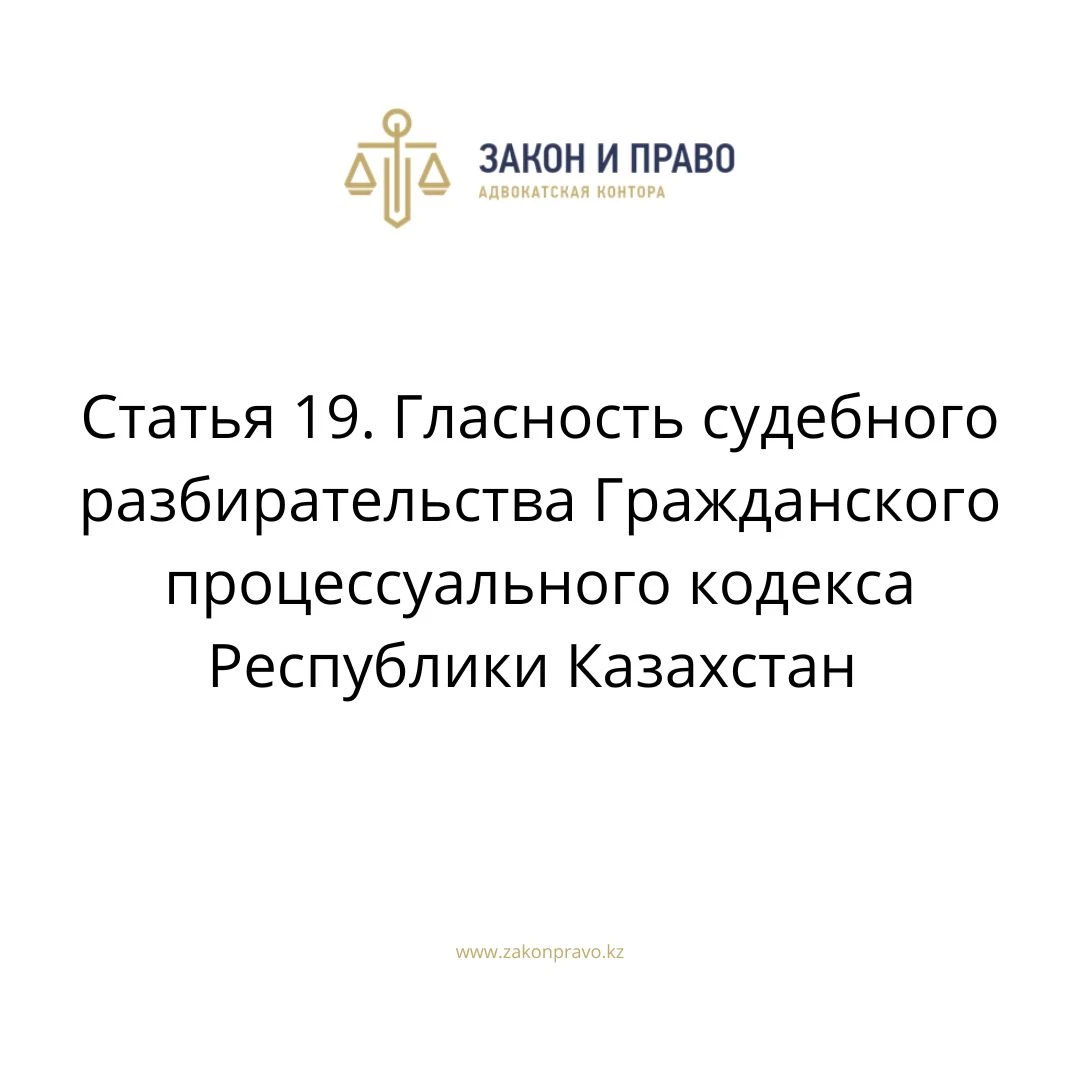Article 19. Publicity of judicial proceedings of the Civil Procedure Code of the Republic of Kazakhstan
1. The hearing of civil cases in all judicial instances takes place openly. Judicial acts are announced publicly.
2. In a closed court session, cases are considered and resolved in accordance with the law, including the announcement of decisions containing information that are state secrets, as well as cases of child adoption.
At the request of a person participating in the case or on the initiative of the court, a civil case may be considered and resolved in a closed court session if it is necessary to ensure the inviolability of private life, the preservation of personal, family, commercial or other legally protected secrets, or if there are other circumstances preventing open proceedings, as well as in the case provided for in part four of Article 188 of this Code.
3. Personal correspondence and other personal communications may be disclosed in open court only with the consent of the persons between whom this correspondence took place and to whom these personal communications relate. In the absence of such consent, correspondence and messages are announced and examined in a closed court session.
These rules also apply to the study of audio, video recordings, photographic and film recordings and other materials on electronic, digital and other material media containing personal information.
4. During the hearing of the case in a closed court session, the persons participating in the case, their representatives, and, if necessary, witnesses, experts, specialists, and translators are present, who are warned by the court about responsibility for disclosing the information specified in part two of this article.
5. Citizens under the age of sixteen are not allowed in the courtroom unless they are persons participating in the case or witnesses.
6. Proceedings in a closed court session shall be conducted in compliance with all the rules established by this Code.
7. Persons participating in the case and other persons, including representatives of the mass media, present at an open court hearing, have the right to take notes during the court session, record it using audio recordings and digital media from their seats in the courtroom. Film and photography, video recording, live radio and television broadcasting, and video broadcasting on the Internet are allowed in the courtroom with the permission of the court and taking into account the opinions of the persons involved in the case. This is indicated in the court ruling, which is recorded in the minutes of the court session. These actions should not interfere with the normal course of the court session and may be limited in time by the court.
8. The court issues a ruling on the trial of a case in a closed court session in respect of all or part of the trial, which is recorded in the minutes of the court session.
9. Judicial acts that have entered into legal force shall be published on the court's Internet resource and may be publicly discussed subject to the restrictions established by part two of this article and other laws.
10. Information about appeals received by the court in civil cases pending before the court is subject to publicity and notification to the participants in the process by posting this information on the official Internet resource of the court.
The footnote. Article 19 as amended by the Law of the Republic of Kazakhstan dated December 20, 2021 No. 84-VII (effective ten calendar days after the date of its first official publication).
President
Republic of Kazakhstan
© 2012. RSE na PHB "Institute of Legislation and Legal Information of the Republic of Kazakhstan" of the Ministry of Justice of the Republic of Kazakhstan
Constitution Law Code Standard Decree Order Decision Resolution Lawyer Almaty Lawyer Legal service Legal advice Civil Criminal Administrative cases Disputes Defense Arbitration Law Company Kazakhstan Law Firm Court Cases


